FAVORITE HISTORICAL DIRECTORS / FILMMAKERS
===========================================================================
===========================================================================
=================================== (01) ====================================
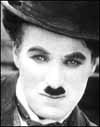
CHARLES CHAPLIN
(b. 1889) (1914-1967) (d. 1977 @ 88y)
===========================================================================
LINK TO SEPARATE CHECKLIST
===========================================================================
=================================== (02) ====================================

BUSTER KEATON
(b. 1895) (1917-1966) (d. 1966 @ 70y)
===========================================================================
LINK TO SEPARATE CHECKLIST
===========================================================================
=================================== (03) ====================================
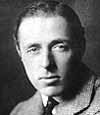
D.W. GRIFFITH
(b. 1875) ((1908-1931)1940) (d. 1948 @ 73y)
===========================================================================
------------------------------ Theatrical Features ------------------------------
IMDb Statistics as of March, 2014
|
(Sorted by Date of Release) |
(Sorted by # of IMDb Votes)
|
(Sorted by IMDb Rating)
|
------------------------------ Selected Theatrical Shorts ------------------------------
|
|
=================================== (04) ====================================

ERICH VON STROHEIM
(b. 1885) (1915(1919-1933)1955) (d. 1957 @ 71y)
===========================================================================
|
|
|
Note #1: "The Devil's Passkey" - In 1941 it was discovered that the original nitrate print had decomposed in the Universal vaults. It is presumed to be a LOST film.
Note #2: "Merry-Go-Round" - During production, Erich von Stroheim was fired and replaced by Rupert Julian because of cost overruns. According to some sources, Julian re-shot most of the scenes that had already been filmed, the story was altered from von Stroheim's original vision, and Stroheim's original footage accounts for less than ten minutes. According to other sources, the film was thematically and texturally Stroheim's film, and contains enough von Stroheim touches to suggest that "official" director Rupert Julian merely tied together the film's loose ends.
Note #3: "The Wedding March" & "The Honeymoon" - Erich von Stroheim's story consisted of three-parts which he envisioned filming as a 3-part epic. Shooting began on the first film "The Wedding March", but was stopped after nine months of filming. Stroheim was then ordered to make two films from the material already completed: "The Wedding March" and the sequel "The Honeymoon". No footage was ever filmed for the planned (and unnamed) third part. "The Wedding March" (as it survives today) premiered in the USA on October 6, 1928 and tells only about one-third of the original story that Stroheim wrote for that film. The sequel "The Honeymoon" was never completed and never released in the US, although it had a limited release in Europe (date unknown). The only known copy of "The Honeymoon" was destroyed in a fire in the 1950s and is thus considered a LOST film.
Note #4: "The Great Gabbo" - Director: James Cruze / Star & Uncredited Director: Erich von Stroheim
Note #5: "Queen Kelly" - Original filming began on November 1, 1928. On January 21, 1929 (with little more than one-third of the planned 4-hour film shot), Stroheim was fired by producer Joseph P. Kennedy at the insistence of the film's star (and Kennedy's mistress) Gloria Swanson, a move which effectively shut down production of the film. Swanson demanded the firing following complaints about the direction the film was taking, namely that the African part of the storyline was distasteful. Kennedy and Swanson decided to scrap the African storyline, and salvage the European material. Synchronized sound retakes were shot on December 9, 1929 to be added to the film, which was originally envisioned and shot as a silent film. Two years later, an alternate ending was shot on November 24, 1931 by cinematographer Gregg Toland to complete the picture, which is known as the 'Swanson Ending' or 'Suicide Ending'. This version contained dialogue sequences and one musical interlude sung by star Swanson. Since Stroheim owned part of the property, he refused to grant releasing rights in the U.S. and elsewhere for what he considered a bastardized version. This revised version was released in November, 1932 in runs that were limited to Europe and South America. A short extract of the film appears in in the 1950 film which reunited Erich von Strohein and Gloria Swanson - "Sunset Boulevard" - the first time viewers in the US got to see any footage from the troubled 1929 film. It would be another 16 years before "Queen Kelly" was finally shown in the U.S. (with the Swanson/Suicide Ending) via both a minor theatrical release and television broadcast. The television broadcast included a taped introduction and conclusion in which Swanson talked about the history of the project. In 1985, Kino International acquired the rights to the movie and restored two versions: one that uses still photos and subtitles in an attempt to wrap up the African storyline version, and the other European "'Swanson/Suicide Ending" version (both of which are available on the DVD).
Note #6: "Hello, Sister!" - Although Stroheim completed a film titled "Walking Down Broadway" on schedule and within the allotted budget, that film was deemed too raw and gritty by Fox producers. As a result, Stroheim (who both wrote and directed "Walking Down Broadway") was fired. A new screenwriter was brought in to redo the script, and Alan Crosland was brought in to direct. The film, retitled "Hello, Sister!, was almost entirely re-shot, and Stroheim's name was removed from the official credits. When released, "Hello, Sister!" flopped. Although some of Stroheim's scenes from "Walking Down Broadway" were inter-cut with the newly filmed "Hello, Sister!" material, most of his footage was left on the cutting room floor and has never been recovered. As a result, many sources now describe "Walking Down Broadway" as a lost film, and it is only the retitled hybrid version of the film which survives today. (Note: IMDb does not have a separate entry for "Walking Down Broadway", rather that title is listed as the "USA (working title)" for "Hello, Sister!").
The following 2 links contain an abridged 2-part You Tube version of the film containing 43% (26:37) of 62 min of total film footage including opening credits and selected scenes delineating the entire film's plot including the film's closing scenes: (part 1) (part 2)
(article containing analysis of film before and after re-editing)
=================================== (05) ====================================
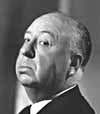
ALFRED HITCHCOCK
(b. 1899) (1922(1925-1976)) (d. 1980 @ 80y)
===========================================================================
|
Theatrical Narrative Features (London Era)
Silent
Talkies
|
Theatrical Narrative Features (Hollywood Era)
|
|
Misc. Shorts
|
War Propoganda (Link to Article)
|
TV Shows & Episodes [not checkable]
|
=================================== (06) ====================================

GEORGE CUKOR
(b. 1899) ((1930-1981)) (d. 1983 @ 83y)
===========================================================================
|
|
Uncompleted Feature
Misc. Shorts
|
George Cukor's Partial Directing Credits
George Cukor was an uncredited director on a number of other feature films. He was fired from some after starting as director, and he came in and helped to complete others while in progress. He also just assisted other directors in an uncredited capacity. The films which he is known to have assisted in directing in some part are:
|
=================================== (07) ====================================
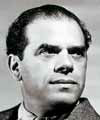
FRANK CAPRA
(b. 1897) (1922(1926-1961)1964)) (d. 1991 @ 94y)
===========================================================================
|
Theatrical Narrative Shorts
Educational Documentary Films
|
"Why We Fight" Documentaries (TOTAL 370m)
More War Propoganda Documentaries
|
|
=================================== (08) ====================================
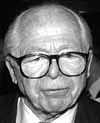
BILLY WILDER
(b. 1906) (1929(1934-1981)) (d. 2002 @ 95y)
===========================================================================
|
Paris era (1933-34)
Hollywood era (1934-2002) | |||||||||||||||||||||||||||||||||||||||||||||||||||||||||||
|
|
Documentary Short
|
Billy Wilder's Additional Screenplay & Writing Credits
Billy Wilder initially gained fame in Hollywood as a brilliant screenwriter. When given the chance to direct based on his success as a screenwriter, he also gained Hollywood fame as a brilliant director based largely on the continued strength of his screenplays. The following are additional films which Billy received a writing credit, but not a directing credit.
|
German era (1929-33)
|
Paris era (1933-34) ---> Only writing credit was "Mauvaise Graine" (1934)
Hollywood era (1934-2002)
|
** = Many of the German films Wilder made in Germany had alternative French &/or English language versions produced in Germany at or about the same time. Others were simply remade in the UK or USA in English. Alternative French versions are not included, but alternate English versions are. German, French and English Languages are noted for those films produced during Wilder's German and Paris eras.
=================================== (09) ====================================
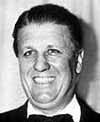
GEORGE STEVENS
(b. 1904) (1930(1933-1970)) (d. 1975 @ 70y)
===========================================================================
|
|
|
STILL UNDER CONSTRUCTION - MORE TO COME |
=================================== (10) ====================================
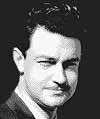
PRESTON STURGES
(b. 1898) (1930(1940-1955)) (d. 1959 @ 60y)
===========================================================================
|
|
|
Preston Sturges' Additional Screenplay & Writing Credits
Preston Sturges initially gained fame in Hollywood as a brilliant screenwriter. When given the chance to direct based on his success as a screenwriter, he also gained Hollywood fame as a brilliant director based largely on the continued strength of his screenplays. The following are additional films which Preston received a writing credit, but not a directing credit.
|
|
Documentary Short (writing credit only)
|
=================================== (11) ====================================
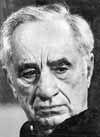
ELIA KAZAN
(b. 1909) (1937(1945-1976)1993) (d. 2003 @ 94y)
===========================================================================
|
|
Misc. Shorts
|
=================================== (12) ====================================
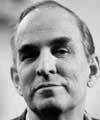
INGMAR BERGMAN
(b. 1918) (1944(1946-1982)2003)) (d. 2007 @ 89y)
===========================================================================
LINK TO SEPARATE CHECKLIST
=================================== (13) ====================================
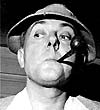
JACQUES TATI
(b. 1907) (1932(1949-1971)1974) (d. 1982 @ 75y)
===========================================================================
|
Theatrical Narrative Features
|
TV Movie Special
Tati Screenplay --> Animated Theatrical Narrative Feature
|
Misc. Shorts
Directed by Jacques Tati's daughter - Sophie Tatischeff
|
=================================== (14) ====================================

AKIRA KUROSAWA
(b. 1910) (1936(1943-1993)1998) (d. 1998 @ 88y)
===========================================================================
|
|
Documentary Biography
|
=================================== (14) ====================================
YASUJIRO OZU
(b. 1903) (()) (d. 1963 @ 60y)
===========================================================================
|
SILENT FILMS (ALL - Including LOST)
SOUND FILMS (B & W) (Pre-WWII)
SOUND FILMS (B & W) (Post-WWII)
SOUND FILMS (COLOR)
|
SILENT FILMS (SURVIVING)
SOUND FILMS (B & W) (Pre-WWII)
|
SOUND FILMS (B & W) (Post-WWII)
SOUND FILMS (COLOR)
|
LOST FEATURES - SURVIVING AS SHORTS
SHORTS
|
=================================== (15) ====================================

SATYAJIT RAY
(b. 1921) ((1955-1991)) (d. 1992 @ 70y)
===========================================================================
|
The Apu Trilogy (1955-59)
|
Misc. Selected Films
|
STILL UNDER CONSTRUCTION - MORE TO COME
=================================== (16) ====================================

ANDREI TARKOVSKY
(b. 1932) (1956(1962-1986)) (d. 1986 @ 54y)
===========================================================================
|
Theatrical Narrative Features
|
Narrative "Student Films" 1 (19m Short)
Narrative "Student Films" 2 & 3 (45m/46m Features)
TV Documentary
|
=================================== (17) ====================================

KRZYSZTOF KIESLOWSKI
(b. 1941) (1966(1976-1994)) (d. 1996 @ 54y)
===========================================================================
|
ALL FILMS (1966-1974)
|
ALL FILMS (1975-1994)
|
NARRATIVE FEATURES ONLY
Dekalog Films (1988-89)
Three Colors Trilogy (1993-94)
|
NOTE #1 = The 18 minute Documentary Short "Seven Days a Week" (aka "Siedem dni w tygodniu") was included in the theatrically released feature length film titled City Life (1990), an internationally produced anthology documentary which included 14 different documentary shorts by 14 different international directors.
NOTE #2 = "A Short Film About Killing" and "A Short Film About Love" were expanded theatrically released feature length versions of film #5 and film #6 of "The Decalogue" Mini-Series using the same cast with only slight changes to the stories. Since the high budget mini-series was intended for a domestic Polish TV which would yield only minor advertising revenue, the producers added these exapanded versions to Kieslowski's contractual obligation for "The Decalogue" recognizing these feature films would be easier to distribute outside Poland, and profits from those films would help to ensure the overall project would be profitable.
NOTE #3 = Krzysztof Kieslowski's began his film career primarily as a documentarian, but politics forced him to slowly transition his filmmaking techniques to more narrative films. His early documentaries focused on the everyday lives of city dwellers, workers, and soldiers. Though he was not an overtly political filmmaker, he soon found that attempting to depict Polish life accurately brought him into conflict with the authorities. These problems included heavy censorship, criticism from colleagues believing he was cooperating with the government, and an incident in which some of his footage was nearly used as evidence in a criminal case. For these reasons, he decided that fiction not only allowed more artistic freedom, but could portray everyday life more truthfully. (source: Kieslowski's Wikipedia entry).
NOTE #4 = Because Kieslowski's filmography began with documentaries but slowly evolved into narrative films for political reasons, many films straddle the lines between documentary and narrative films. Additionally, his films are not always easy to disaggregate into those which were released theatrically vs. those which were TV films. And finally, the length of the films do not easily separate into shorts and feature length. For these reasons, his films are listed chronologically by date of release (per IMDb) with text prepending the movie title designating the type of film.
A key to the abbreviations prepending the movie titles follows:
LEGEND ---> [NF-TH] = Narrative Feature (Theatrically Released)
LEGEND ---> [NF-TV] = Narrative Feature (TV Movie)
LEGEND ---> [NF-MS] = Narrative Feature (TV Mini-Series)
LEGEND ---> [--DOC] = Documentary (Features & Shorts)
LEGEND ---> [NShort] = Narrative Short
=================================== (XX) ====================================
GEORGE ROY HILL
(b.____) (____(____-____)____) (d.____ @ __y)
===========================================================================
|
=================================== (AA) ====================================
ERNST LUBITSCH
(b.____) (____(____-____)____) (d.____ @ __y)
===========================================================================
|
Silent Pictures
|
Sound Pictures
|
=================================== (99) ====================================
NEXT DIRECTOR
(b.____) (____(____-____)____) (d.____ @ __y)
===========================================================================
=================================== (AA) ====================================
OTHER DIRECTORS
===========================================================================
Below is a list of other HISTORICAL Directors/Filmmakers which I am not officially citing as "Favorites", but who have directed (& perhaps screenwritten) favorite films of mine, are directors/filmmakers I remain very curious about, and whose films I plan to continue seeking out and watching. These directors/filmmakers are right at the threshold of being "Favorites", and might become one after watching just another film or two which I find I love.
|
|
|
|
Here are others HISTORICAL Directors/Filmmakers which have made films I enjoyed. While not technically being on the threshold of being Favorites of mine, they have either made films I enjoyed, or are so historically significant that it would be foolish to dismiss them too casually. I am reserving judgement until I see more films of theirs, although I won't necessarily be actively seeking out titles of theirs to watch, but rather will simply note their directing/screenwriting credits as I continue to watch great films as included on great films lists.
|
|
|
|
===========================================================================
===========================================================================
===========================================================================
===========================================================================
===========================================================================
IGNORE --- OLD STATISTICS
BEING REPLACED WITH OTHER FORMAT
8 COMPLETED FILMOGRAPHIES (8/17 = 47%)
TABLE OF CONTENTS w/ PERSONAL CUMULATIVE FILMOGRAPHY IMDb RATINGS/RANKINGS & COMPLETION STATUS
|
=================================== (BB) ====================================
NOTES ON TABLE OF CONTENTS & FILMOGRAPHIES
===========================================================================
Explanation of Table of Contents w/ Personal Cumulative Filmography Statistics
|
Explanation of Director's Date Headers
(BORN) (began film career (YEARS DIRECTING THEATRICAL FEATURES) ended film career) (DIED)
By default, all Titles are Directing Credits of Theatrically Released Narrative Features except where headers (or notes) describe otherwise. Also, by default, directing credits might also include a writing or producing credit for the director, which are not necessarily specified.
(Please ignore editing notes below)
60X60
Bergman - TVvFeature
************************************************************X************************************************************
